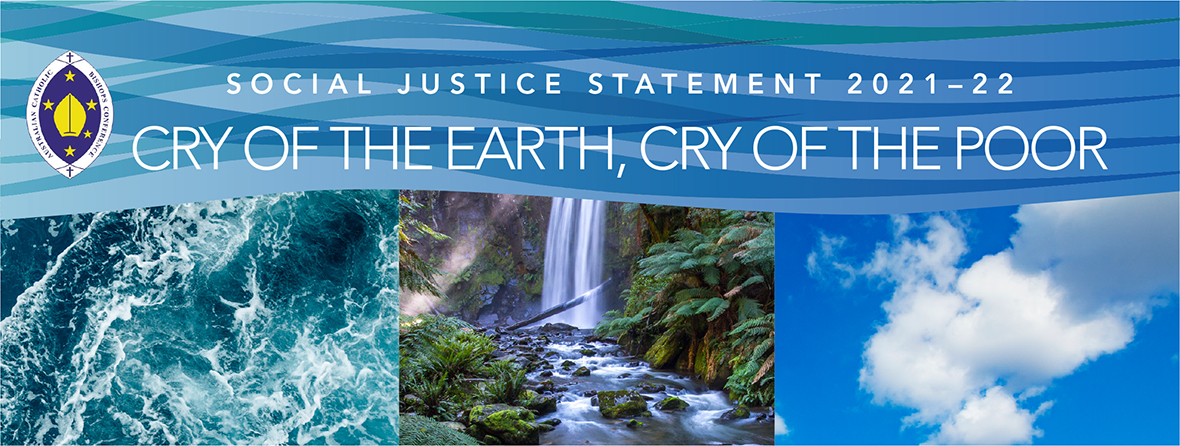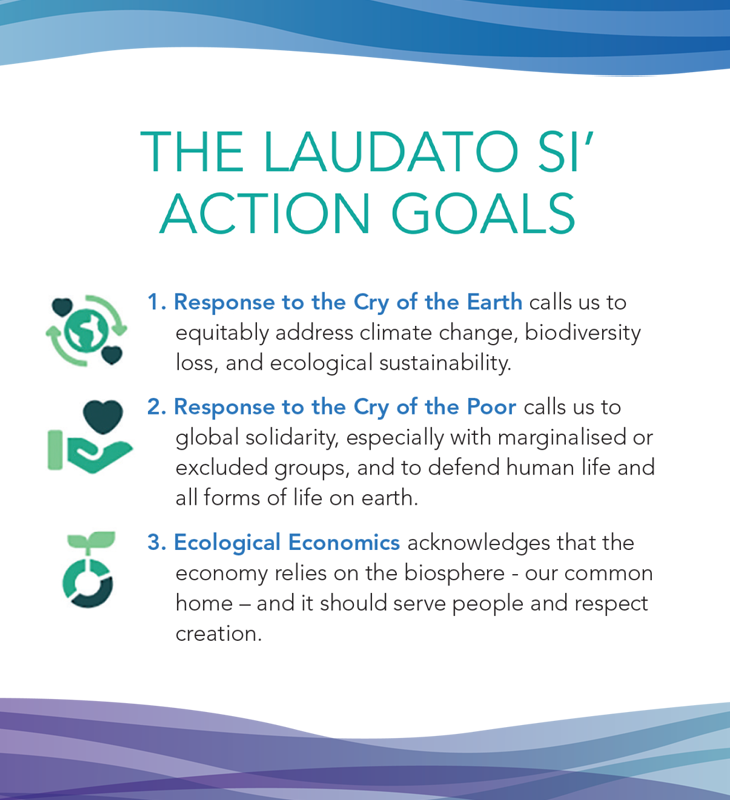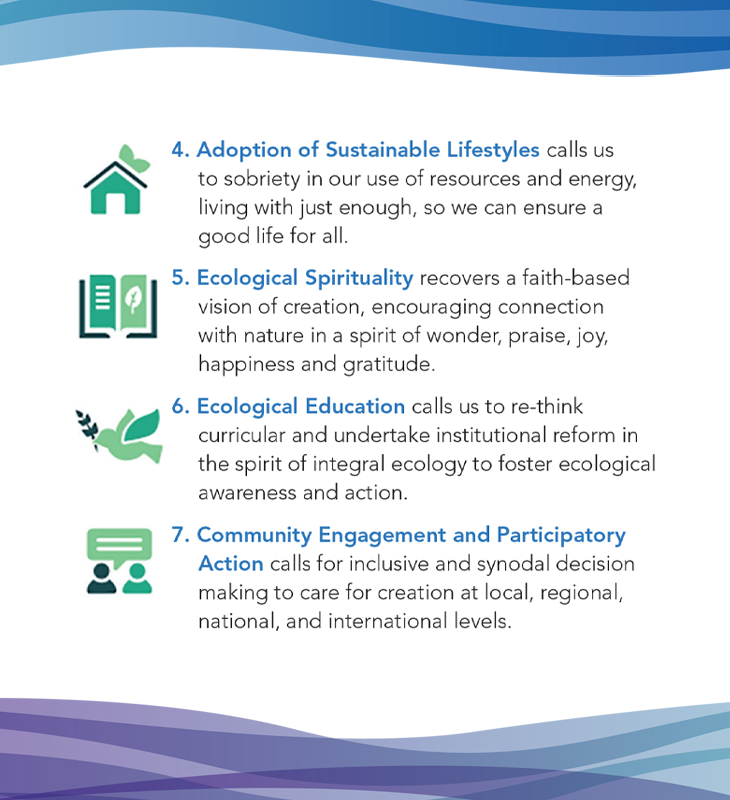
Cry of the Earth, Cry of the Poor – 2021-22 Social Justice Statement
The Australian Catholic Bishops’ Social Justice Statement 2021-22: Cry of the Earth, Cry of the Poor, affirms that “we human beings need a change of heart, mind, and behaviour”. It exhorts us all to care for creation and the most vulnerable people in our worldwide human family.
In the media release which accompanied the launch of the statement, the Australian Catholic Bishops Conference recognised its unprecedented decision to work towards a more sustainable Church through their commitment to a seven-year journey towards the seven Laudato Si’ Goals.
In a video released with the statement, seven bishops from across Australia spoke about the immediate need to care for all of creation as God’s gift to us, especially because of the damaging effects of climate change on our land, waterways, air, plants, animals and people. “Right through the centuries, God has called on humanity to act in times of great peril” says Archbishop Mark Coleridge in the video’s opening scene.
We and our sisters and brothers rely on the earth for so much and it is the most disadvantaged in our human family who feel the effects of climate change the most.
– Archbishop Peter Comensoli, Archdiocese of Melbourne
The Statement was launched online (a video of the launch can be viewed here) on 5th August in the lead up to Social Justice Sunday on 29 August 2021. “We are facing an ecological crisis and Pope Francis wants the whole Church globally to act with a greater sense of urgency,” said Bishop Vincent Long OFM Conv, chair of the Bishops Commission for Social Justice, Mission and Service.
Aunty Sherry Balcombe, Manager of Aboriginal Catholic Ministry, Melbourne began the presentation with an Acknowledgement of Country. She emphasised that for indigenous peoples, a relationship with the land is at the centre of our lives and as caretakers of the land “their law was to sustain and nurture all that has been created”.
Fr Joshtrum Isaac Kureethadam Coordinator of Ecology and Creation at the Vatican Dicastery of Integral Human Development addressed the launch via video message. He congratulated the Bishops on the theme of the Statement and the proposed roadmap for environmental sustainability which went straight to the Heart of Laudato Si’.
The Statement draws from Scripture, from the theological tradition, from Catholic Social Teaching, and from the wisdom of the world, including the insights of the First Nations. The Statement reflects on creation in and through the Trinity; the sacramentality of all created things; the wonder and beauty available to the contemplative eye; and the need for conversion and change of life.
In the Statement, the Bishops invite the whole Catholic community to join them in taking up Pope Francis’ invitation to a seven-year journey towards total ecological sustainability, guided by seven Laudato Si’ Goals. This can begin by signing up to the Laudato Si Action Platform, an initiative of the Vatican Dicastery for Promoting Integral Human Development.


The Statement especially encourages Catholic families, communities, parishes, dioceses and organisations to: listen to First Nations peoples as the first teachers of how to care for the land; reflect on the theological foundations offered in Cry of the Earth, Cry of the Poor; and plan their next steps towards the Laudato Si’ Goals.
Part of the Bishops’ commitment is reflected in their decision to rename the Office for Social Justice as the Office for Justice, Ecology and Peace. The resources for the statement including liturgy notes, prayer cards, an action card and a podcast version of the statement can be found on their website.
The call to listen to the cry of the earth and the cry of the poor has never been louder
– Bishop Don Sproxton, Archdiocese of Perth
